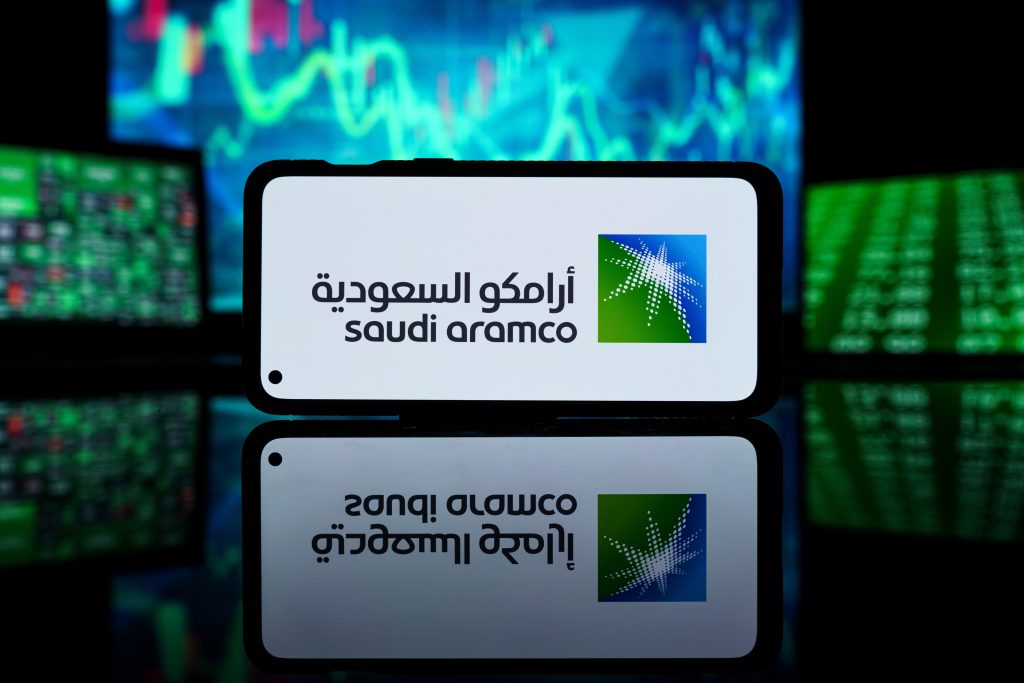Saudi Aramco, the kingdom’s oil behemoth, has finalized a colossal stock offering that will inject a minimum of $11.2 billion into Riyadh’s coffers. This landmark deal stands as the largest of its kind worldwide in nearly three years and is poised to underpin a comprehensive multi-trillion-dollar plan aimed at overhauling the nation’s economy.
The government has announced it will offload close to 1.55 billion shares at the price of 27.25 riyals each (equivalent to $7.27), signifying a 6% markdown from the stock’s previous closing price prior to the announcement. This pricing strategy aligns with the decade’s average for comparable share offerings.
Landing in the lower spectrum of the anticipated 26.70 to 29 riyals range, the final price comes at a time when Aramco’s shares have faced downward pressure, recently hitting a low not seen in over a year. This massive share offer has also had the effect of siphoning liquidity from the Saudi market.
The substantial revenue generated from this sale is earmarked to support the ambitious endeavors championed by Crown Prince Mohammed Bin Salman. His vision encompasses investments across sectors such as sports, artificial intelligence, tourism, and the futuristic desert city of Neom. With the national budget showing a deficit for six consecutive quarters, the kingdom has already secured over $40 billion this year through local and international borrowing to bridge the shortfall.
On opening day, the demand for Aramco shares was so robust that it matched the entire offering within hours. Investors were particularly enticed by the company’s $124 billion annual dividend, which has seen an increase of over 60% since its initial public offering.
“Aramco is a compelling buy at its current valuation, and we advocate for it as a long-term, three-year investment,” expressed Anita Gupta, head of equity strategy at Emirates NBD PJSC in Dubai. She highlighted the heightened appeal of the stock due to an expected surge in trading volumes and a dividend yield that surpasses other major corporations and oil industry giants.
Secondary offerings of this magnitude are a rarity in the region, with Aramco’s status as the national flagship and its sheer size making it a standout. Previous offerings in the region, such as those from Saudi Telecom Co. and Tadawul Group Holding, priced at a discount of approximately 10%.
According to sources, the offering captivated considerable interest from international investors, with bids exceeding the total number of shares available. The exact amount of foreign investment is yet to be disclosed, but it was substantial enough to cover the issuance fully.
“This kind of offering, with its appealing yields, is likely to draw a diverse mix of large institutional clients and individual investors,” said Marwan Haddad, managing director and lead portfolio manager for Middle East and North Africa equities at Azimut. He noted that the retail segment of the offering was fully subscribed, as stated in Aramco’s announcement of the final pricing.
This is a significant development compared to Aramco’s IPO in 2019, which saw limited interest from global funds, leaving the Saudi government to rely on local investors. The present sale has shined a spotlight on the involvement of international investors, despite a dimming oil market outlook and supply and demand uncertainties, particularly in China.
While Aramco is recognized for offering the world’s largest dividend, its stock price is deemed expensive when contrasted with major Western oil companies. The timing of the sale coincides with a decline in oil prices in London, falling below $80 a barrel, which is beneath the near $100 level that Saudi Arabia requires to balance its national budget, as per International Monetary Fund data.
Post-offering, the Saudi government will continue to hold a majority stake of approximately 82% in Aramco, with the Public Investment Fund retaining an additional 16%. SNB Capital took the helm as the lead manager of the share sale, supported by a cohort of other prominent financial institutions serving as joint global coordinators and independent financial advisers.
